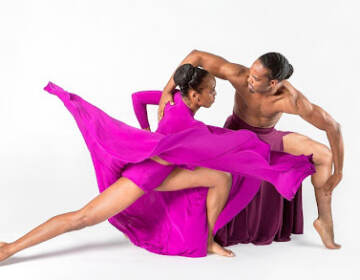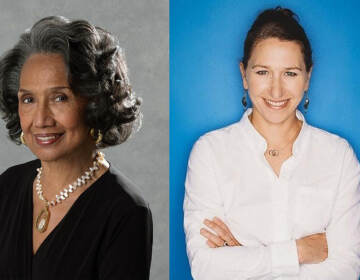50 Black dance companies land in Philly for international festival started by Philadanco
The IABD returns to the city where it started for the 50th anniversary of Philadanco.
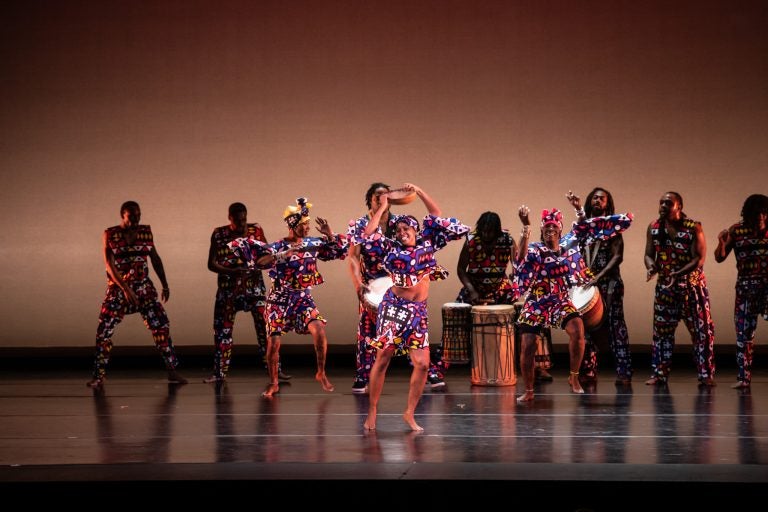
Kulu Mele African Dance and Drum Ensemble at the 32nd Annual International Conference and Festival of Blacks in Dance in Philadelphia. (Scott Robbins)
This week, Philadelphia is hosting the annual International Association of Blacks in Dance conference and festival, a five-day gathering of African American dance companies and Black companies from around the world.
It’s a homecoming for the IABD. The association originated with Joan Myers Brown, who founded the Philadanco performance company 50 years ago. In the mid-1980s, she started cold-calling every dance company she could identify with the word “Black” in its title, to see if they were interested in getting together to talk about the challenges they faced running African American dance companies.
“I thought it would be six ladies in my kitchen,” said Brown. “Sixty people showed up.”
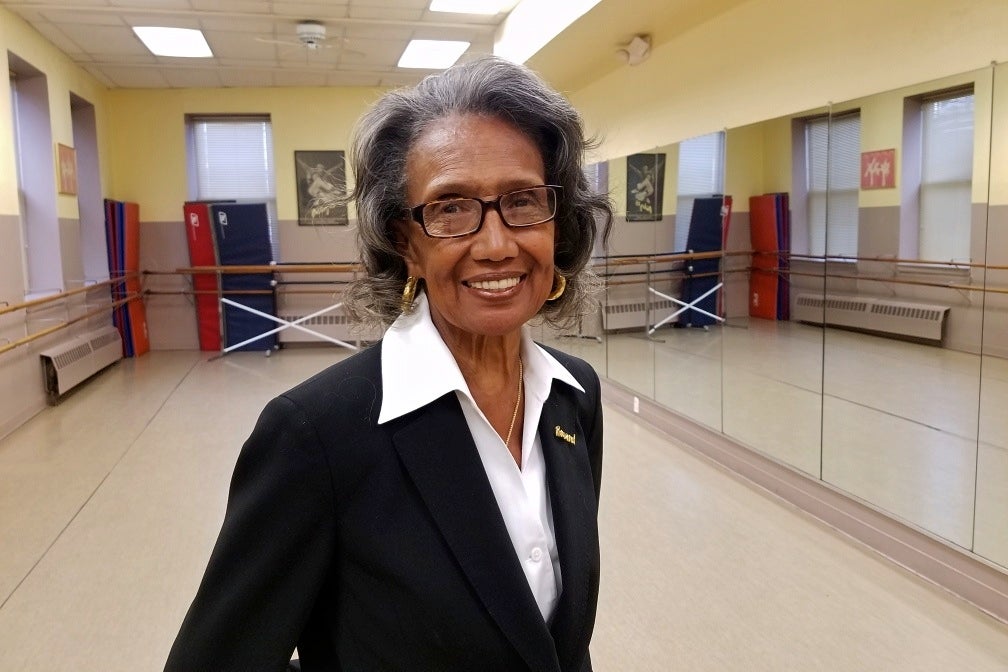
That informal convening 32 years ago became the IABD, which this year attracted more than 1,100 people. The IABD has become its own entity, a nonprofit with a staff and board on which Brown still sits.
Black dance may be more prominent now, but it hasn’t gotten any easier. Presenting companies make space for African American performance companies in their seasons, but they tend to be limited.
“I might get into a place this year, and I won’t get invited back for 5 or 6 years, because they always want someone new and different,” said Brown. “There are so few slots for Black companies.”
What started as a place for administrators of dance companies to exchange survival tips has grown by leaps and bounds to showcase over 50 Black companies from around the world, offer 100 studio classes, and stage 35 panels and seminars.
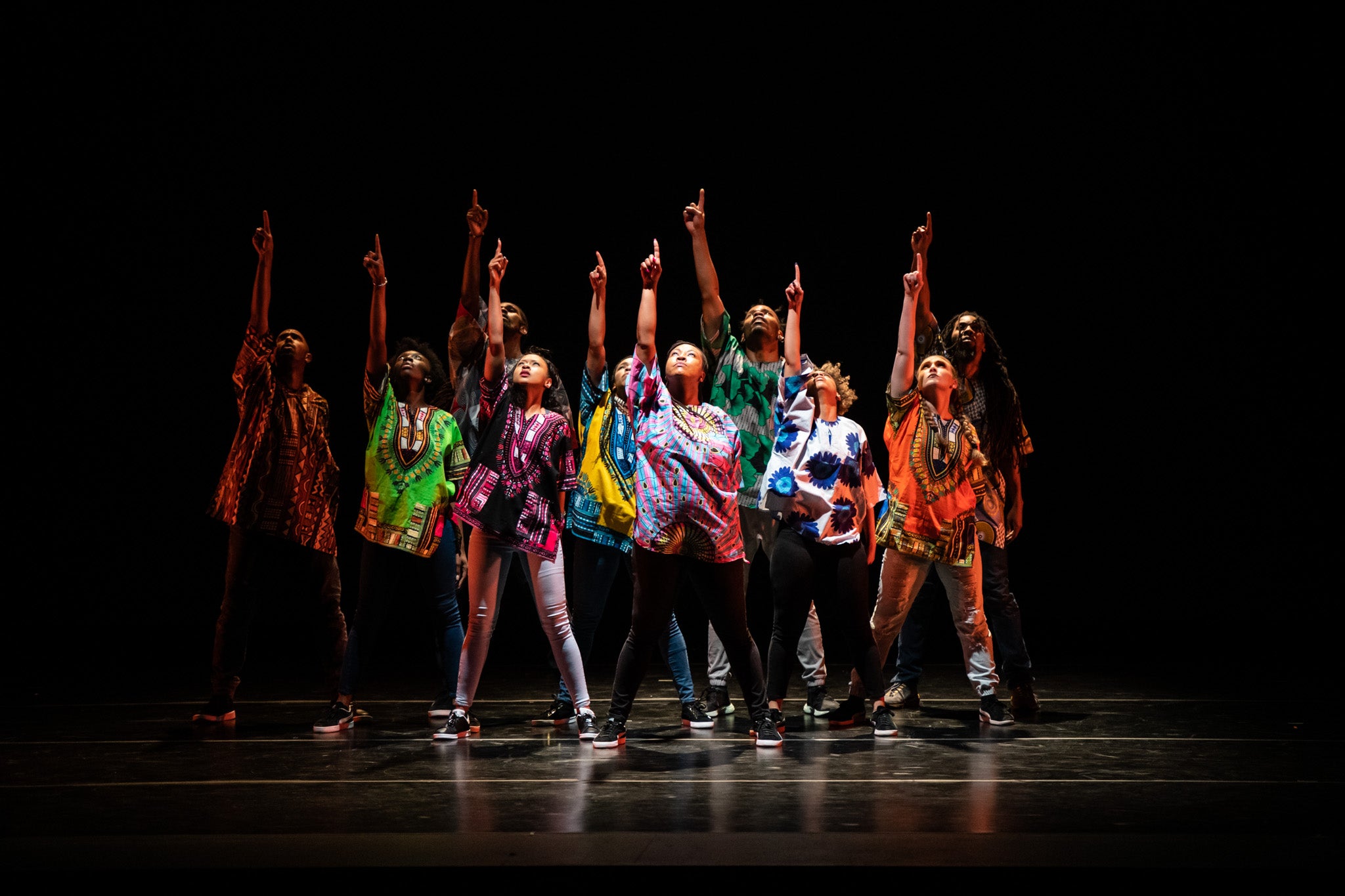
There are also open auditions for young and aspiring dancers. Program director Omar Ingram said that part of the conference is helping young people enter the field.
“This past year we had a dancer at auditions who was scouted by the Rockettes,” said Ingram, referring to 18-year-old Regan Hutsell of Texas. “She went to their summer intensive and just finished her first season as the youngest Rockette.”
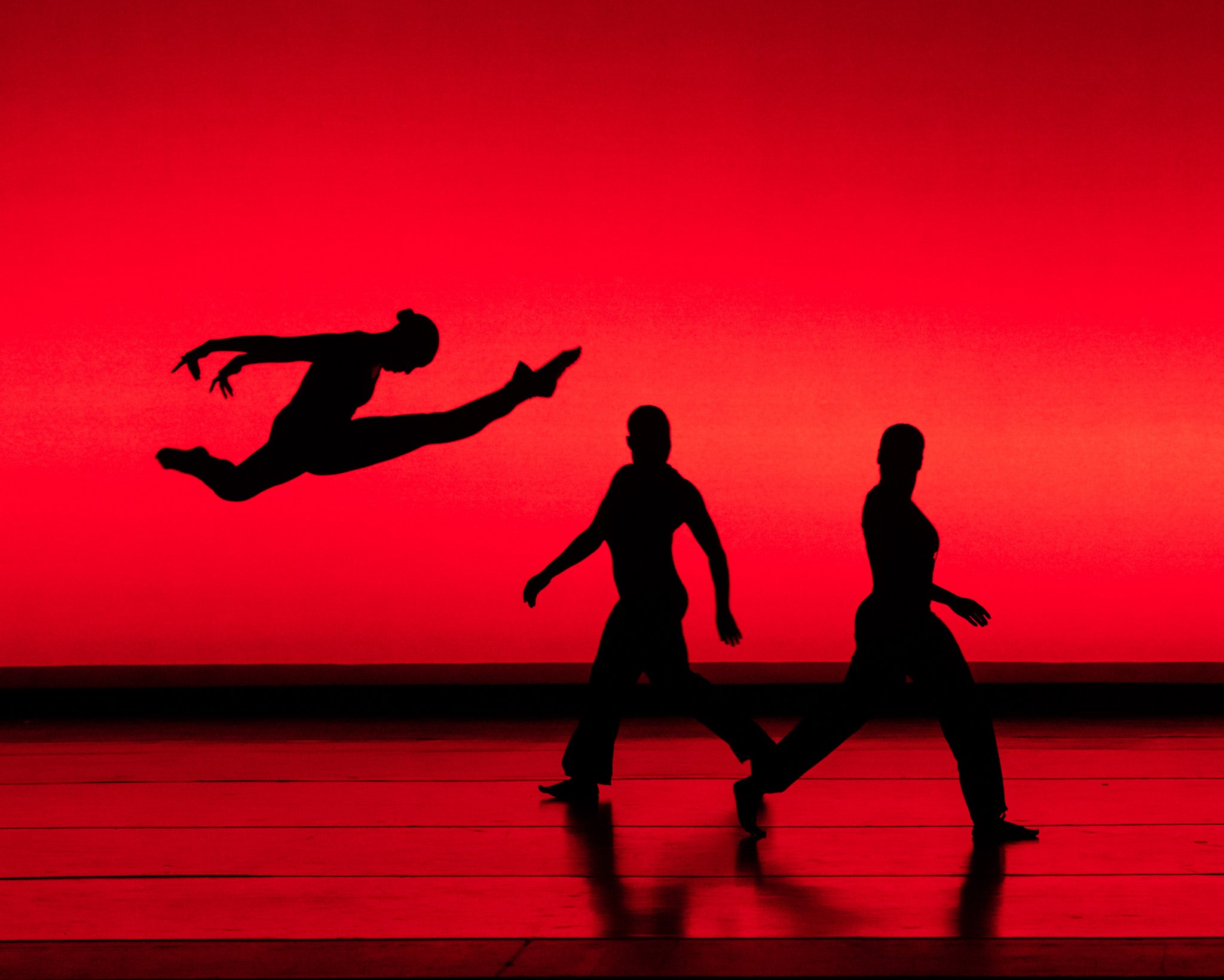
The conference stays true to the roots that Brown put down in 1988. In 2017, it launched the Collaborative Organization Health Initiative (COHI), a consortium of 30 companies who will spend two days together during the conference assessing the overall needs of the Black dance community.
There will also be a seminar of the Coalition for Diasporic Scholars Moving (CDSM), led by Brenda Dixon Gottschild, a Temple University professor emerita. The session will parse implicit racial bias and microaggressions in the worlds of dance and academia, as personally experienced by members of the panel.
“It’s not limited to dance companies,” said Gottschild. “The discussion jumps off from the problems that the presenters have described. From there it works kind of like a power wash, cleansing the issues that people of the global majority carry around with them all the time.”
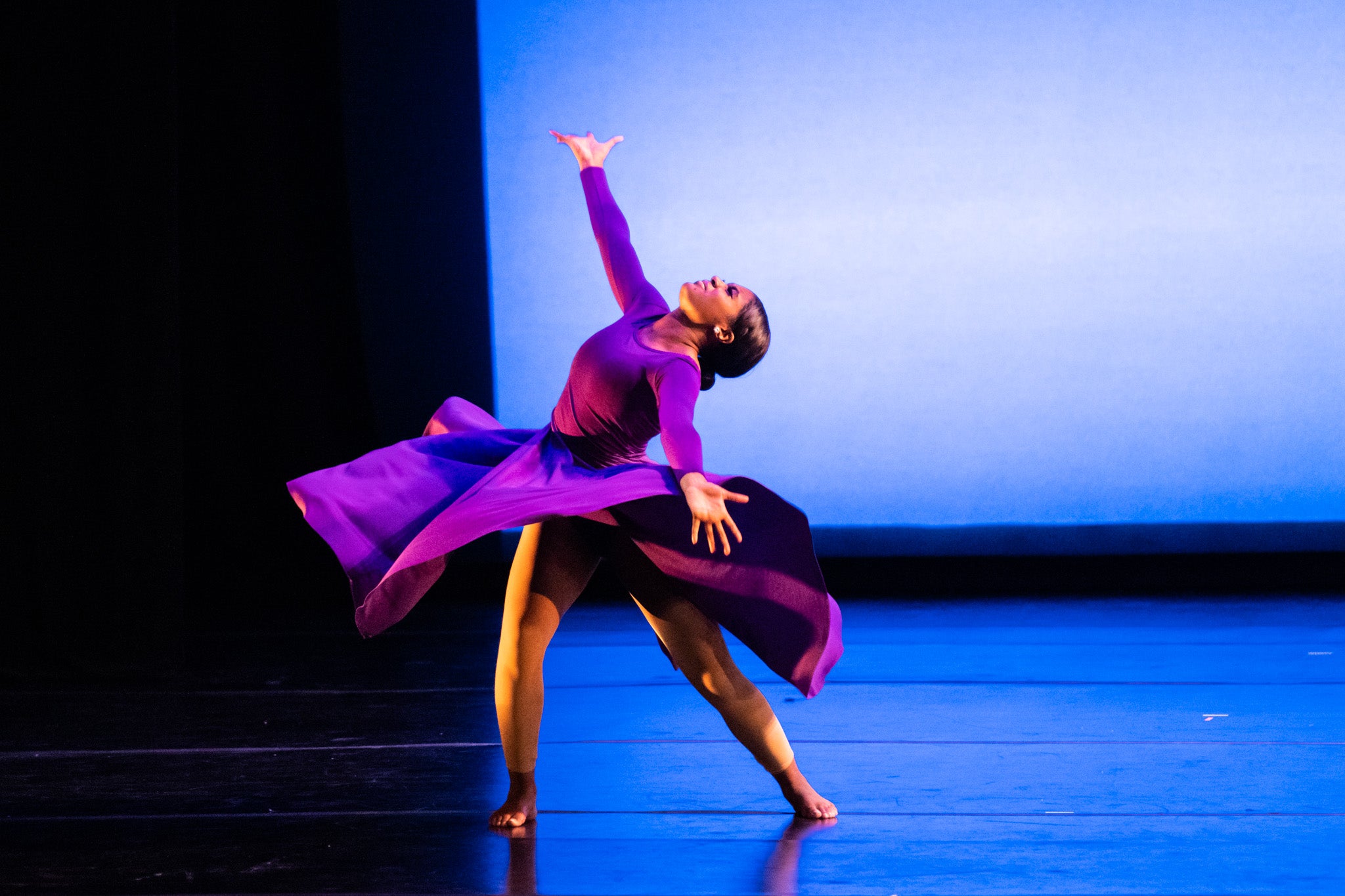
Philadelphia was chosen as the location for the conference, in part, because this year is the 50th anniversary of Philadanco and 60th anniversary of its associated school.
Brown, who turned 88 on Christmas day, plans to step away from the administrative side of the operation in the coming months, but won’t call it a retirement.
“Somebody got that rumor out there. I’m not retiring from Philadanco,” she insisted. “I don’t want to fundraise anymore. I don’t want to beg and shake hands and smile and be nice. I just want to work with the dancers as long as I can, and I think I still can.”
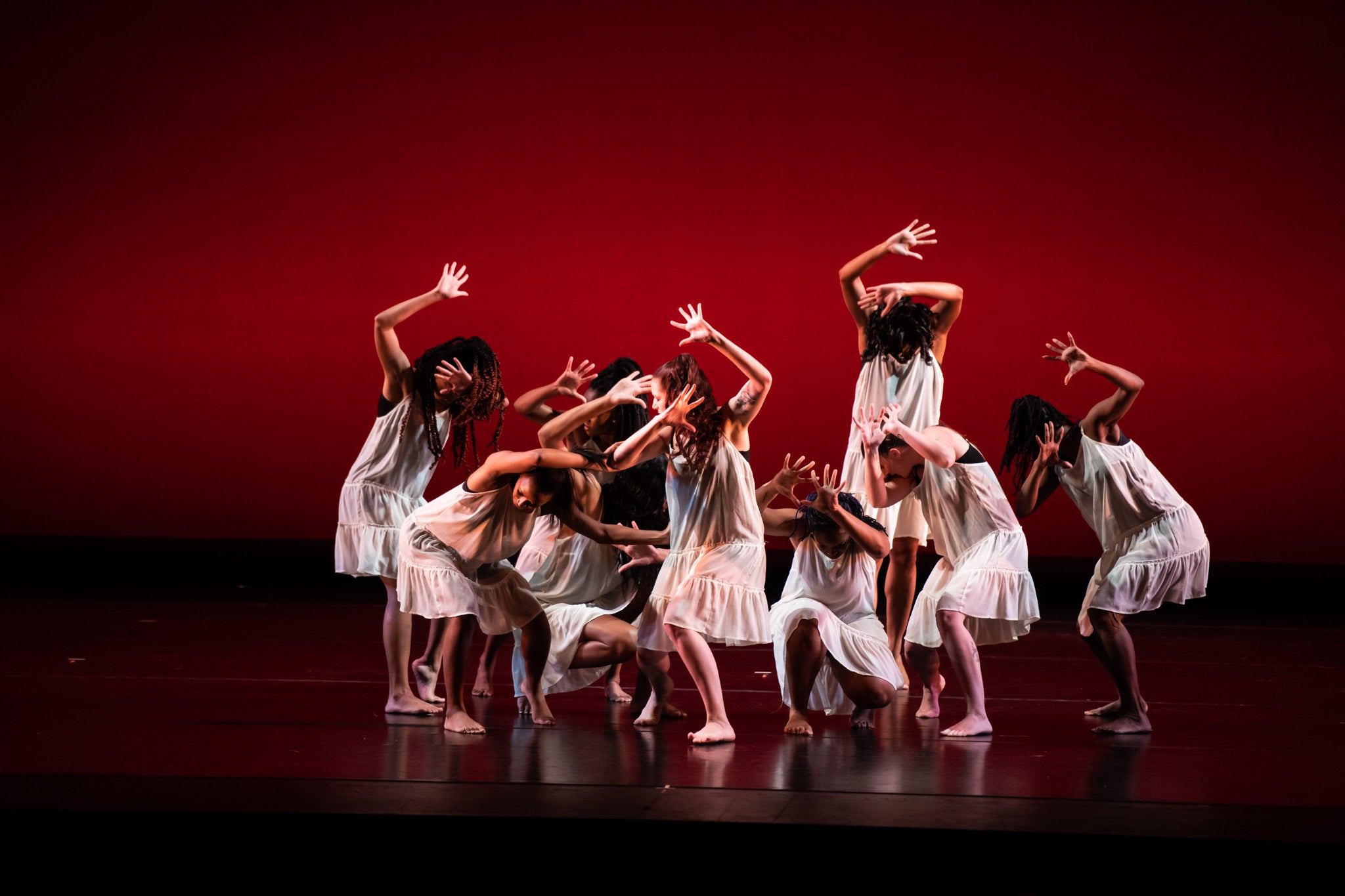
Her longevity has made Brown an icon in the dance world; she was even awarded the National Medal of Honor at the White House in 2012. The accomplishments and accolades may open certain doors, but she says the day-to-day operations of keeping a dance company afloat have not gotten easier in a half-century.
“They think you’re old hat when you’ve been around this long,” she said. “‘Oh, I’ve seen them.’ It’s a continuous struggle to show we are up to date and moving ahead. That’s the hardest part: people thinking they know us.”
WHYY is your source for fact-based, in-depth journalism and information. As a nonprofit organization, we rely on financial support from readers like you. Please give today.




